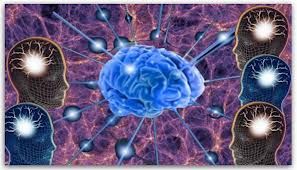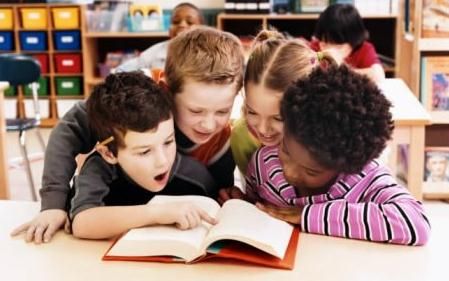Motivation
When Children Hate School, Reignite Their Interest
Linking learning with personal relevance is brain glue.
Posted October 28, 2014


Why Should They Care?
Before the start of kindergarten, children are often excited about beginning school. They are full of curiosity about themselves, the world, and of course there is that question about, “Why the sky is blue?” Children are responding to their young brains’ survival programming to inquire and investigate. There is a drive in all mammals to acquire information about the world so they can understand the meaning new things they perceive and make successful choices, predictions, interpretations, or decisions when faced with new experiences. Children are following this drive and see school as a place to discover information that will unlock more of the secrets of their world.
Sadly, for many children, that enthusiasm drains away through the school years. This is especially problematic for children born in the past 10 years. The disconnect is that today’s children were born in the technology age with its globalized dissemination of rapidly accelerating of amounts of information and specialized knowledge. The reaction to this expanded information pool has been increased requirements for each year’s school curriculum. Whether for state proficiency graduation requirements, AP, IB, or college admission tests, the pressure of the onerous curriculum reaches down to elementary school mandates for stuffing unrealistic quantities of information into students’ brains.
Reluctantly, teachers have to spend more time telling students what they must know and following with drills and homework designed for them to memorize the correct answers to test questions. The biggest losers are the children now deprived of opportunities to explore questions, to develop conceptual understanding, or to experience personal value of the information they must learn. Information is divided into subjects without emphasis on the interrelationships that exist. They are taught literature without the context of history and math isolated from its applications in science.
The result is loss of children’s curiosity-driven passion for discovering, questioning, exploring, imagining, puzzle-solving, and creative innovation. The high demands on memorization and loss of discovery learning leads to disinterest, reduced attention, and facts memorized without enough understanding to transfer them to applications beyond test answers. Without opportunities to use learning for interesting, authentic applications, the information they memorize has little personal value. Information memorized without context or application to relevant tasks is vulnerable to being pruned away, because the circuits holding the information are not activated after the test. Return to school after summer vacation brings the frustration of having to relearn the previous year’s material. How many times can students relearn least common denominators before they loose faith in school or in their own abilities?
You can rekindle your children’s connections to learning by bring back context, application, and curiosity. Connecting school study with your children’s interests, past experiences, and opportunities to make use of the information they study embeds personal relevance and lets them see the value of the learning. When interest is reignited, motivation, effort, and perseverance are restored.

Linking with Learning with Personal Relevance is Brain Glue
Help your children find relevance for school learning by providing context and connecting it to personal meaning. Help them discover how what they are learning at school is relevant to their lives and their worlds. Find out what they will be studying in advance so you can think about how it does connect with family history, their own past experiences, current events, and their interests.
Create a brain-bridge between their lives and their classrooms. Through relevance they will have more curiosity about the school topic. The preheating of curiosity is enhanced by the additional knowledge you help them acquire. Without some personal value and knowledge, their brains’ curiosity will not be drawn to the school topics. Connect them to the history, geography, and literature they are studying through family history, memorabilia, reminders of places they have visited, and people they know. Memories of family camping trips are brain links to new learning about the settlers traveling across the country in covered wagons. When you help your children link new learning to their stored memories you not only increase their interest through personal relevance, but you also increase the durability of the memories they construct.
The brain holds new information most successfully when it can link it with related prior memories. Relational learning promotes the neuroplastic reactions that physically connect their strong existing experiential memory circuits to the new information. The memories you help them activate become mental Velcro that incorporates future related learning into these established memory circuits where learning is stored in relational patterns. New learning connected with existing memory is not only more durable, but easier to remember. They will successfully retrieve the facts of westward expansion by recalling memories of those camping trips.

Relevance to their World
To combat your children’s school experiences of diminished curiosity, from being told what they need to learn, reignite their interest in learning that comes from wanting to know, not being told. Knowing what things are of high interest to your children, you link them to school learning through discussions and by raising curiosity-boosting questions any time - in the car or while waiting on line at the grocery checkout. You might want to have a note card handy with a supply of open-ended questions that work to bridge a variety of topics to your children's interests.
• If your child is interested in sports, pose a question relating that interest to the current school topic.
"If you were the coach of a...team how would you use...to gather information or apply new training strategies to help your team win?” The first blank would be their favorite sport or name of a favorite team. The second blank would be the topic of study (gravity, averaging, multiplying, inventions, or science facts). Reactivate this discussion periodically by asking if they’ve learned additional information on the topic they could now apply to their team’s success.

• If you children are learning about taxation without representation in American history help them make connections with real life and link with math they learned by putting into this relevant context. Show them the grocery bill and ask their opinions about the tax added to the total. Is it fair to have tax? How was the amount of tax calculated? What percent of the total is the tax? Where does the tax money go?
• If you child likes skateboarding and the city council voted down the proposed skateboard park, there is your opening to discuss their protests about the unfair decision as you connect them to their study of the government and activate their executive functions of analysis, judgment, and reasoning. How does the current system of city decision making work? Did your council members represent what your child wanted? Should children vote? Should people who pay more taxes have more say in how tax money is spent? All of these questions can be linked to topics in history such as the Revolutionary War (taxation without representation), the Civil War, poll taxes, and even current day voter registration/identification court decisions.
Math can be a challenge for children, especially when it is taught as a separate subject at school, strictly following a book or program focused on calculations and personally irrelevant word problems. At school the lack of context and relevance doesn’t engage your children’s motivation or effort. With your help, math can jump out of the textbook and into their love of guessing games. Find ways for them to apply the math they are learning to real life questions, predictions, or estimations when you shop, use money, plan meals, look at sport statistics, or plan trips.
• As you shop, have your child mentally estimate the running total of items placed in the cart (rounded up or down to the nearest dollar for each item). Ask her to tell you when you have approximately reached but not exceeded the $20 you brought with you for the groceries.
• Invite children to estimate the weight of a bag of fruit you’ve selected together and then see the weight on the scale. Ask them how many to take out or add to reach an even number of pounds. Show them the scale so they can check out their estimations and revise.
• When your child has assigned reading, look at the publication information together to increase personal relevance. “This book was written in 2001. You were born in 2007. How many years before you were born was this book published?” Relating to his birthday makes the book more personally relevant and uses math for a valued purpose.
• Prediction builds interest and motivation. Encourage your child to play guessing/predicting-counting games when in the car. How many red cars will you she before arriving at school? How long does he think it will take to drive to soccer today? What time is it now? What time does he predict he will we get there?

So They Want To Know What They Have To Learn
In school, when rote learning is emphasized, children deal with facts and skills in isolation. To regain the learning positivity with which they entered kindergarten, find ways to have them practice and build understanding and memory by using what they must learn in ways that match their strengths and interests.
Find out the goal or focus of school learning and create opportunities for them to engage in related home inquiries, projects, and investigations. When you provide opportunities to contextualize the facts and procedures they are learning at school by making them tools they will apply to desired inquiries or projects at home, they WANT to learn what they HAVE to learn. They are attentive and remember what they are taught because they are personally interested in gaining the information to achieve goals that are meaningful to them.

Reigniting Curiosity Puts Brains On Learning Alert
Interest about information that is taught in class is boosted by curiosity about the topic. Stimulate curiosity in your children about school topics with questions and interest-related discussions linked to that information. Their brains will be attentive because their curiosity puts their brains on alert for information that helps answer the question or get closer to a guessing game answer.
For example, before or during the study of fractions, but without formally using numerical fractions, guide them to the concept of what a fraction is, such as things that are whole can be separated into parts, that can be reassembled into the whole.
• An x-ray image of an arm fracture – broken, then reset
• Sheet music with half, whole, and quarter notes
• A carrot cut into quarters then reassembled
• A photo of an iceberg showing the parts above and below water
• Cooking with measuring cups
Then as they learn more about fractions, revisit these same things and ask how they can use the math to represent the picture or experience.

Home Extensions of Learning Beyond Drill and Homework
When your children are learning something that is particularly uninteresting, use your children’s favorite activities as opportunities to represent the concept, information, vocabulary, or procedures in enjoyable ways. These “translations” of learning into new representations are particularly effective for constructing durable long-term memories. Ways to represent learning in new ways include:
• Art representations with pictures, diagrams, photographs
• Visualize personalized, funny, or exaggerated representations of things they must learn or events in
books they read
• Computer simulations and online learning games are more fun than flashcards when facts need to be
memorized or procedures must be automatic (from multiplication tables to vocabulary words). Lots of choices of online learning games for each topic and grade are described fully at https://www.graphite.org/reviews
• Experimentation and manipulation of objects to represent concepts
• Physical movements representing learning topics with dramatizations, pantomime, puppet shows,
step-on number lines, finding shapes, or discovering science in neighborhood or nature walks
• Manipulations to build the patterning skills critical to developing literacy and numeracy: Legos and blocks, moving letters on magnetic boards, writing on chalkboards, making models
Not Just Motivation but Highest Cognitive Functions!
Thanks to your connecting school topics to your children’s lives, experiences, curiosity, predictions, projects, and interests, they will relate to school with greater attention, motivation, and success. Because you are providing opportunities for them to explore, inquire, and apply what they are learning, there is increased neural activity in their brains’ still developing highest cognitive neural networks. You are helping build these circuits of executive functions - their control centers for focused attention, judgment, analysis, organization, time prioritizing, and the ability to delay immediate gratification. That is a pretty great side benefit of helping your children reverse school negativity into positive motivation and perseverance.




